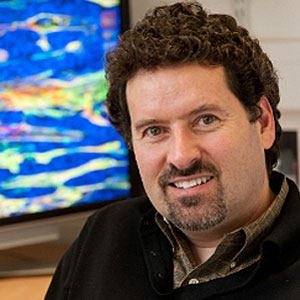Targeting SRC in childhood glioma
Fast facts
- Official title: Targeting SRC as a driver for CNS Group 4 Medulloblastoma and glioma
- Lead researcher: Professor Louis Chesler
- Where: The Institute of Cancer Research, London, UK
- When: December 2020 – January 2025
- Cost: £1,430,968 over five years
- Research type: Paediatric, High grade, Academic, Medulloblastoma, Glioma
- Award type: Quest for Cures
Inside cells are complex communication networks that involve hundreds of proteins that interact with each other to relay messages and make cells behave in a certain way. The discovery of a link between protein activation, Group 4 medulloblastomas and glioma is a major breakthrough and highlights a potential opportunity to disrupt the communication network that is telling these tumours to grow. However, blocking the activity of a single protein in the network slows down the tumour but rarely stops it in its tracks, as they quickly find ways to reroute the message.
What is it?
Many of the complex events that underlie the development of brain tumours are ‘invisible’ if you only look at the genetic makeup of tumour cells. Recently, Professor Louis Chesler and his team from The Institute of Cancer Research in London, used a technology called ‘proteomics’ to directly measure thousands of cancer proteins in brain tumours. They discovered changes in a cancer protein called SRC that appears to drive the formation of Group 4 medulloblastomas and gliomas in preclinical brain tumour models.
Professor Chesler and his team aim to build on this work to understand the role SRC plays in the development of aggressive MB and glioma in more detail, and to test whether blocking SRC activity can halt the growth of these tumours. They will analyse how tumour cells work at multiple levels, which proteins SRC interacts with and will test drugs to accurately disrupt SRC.
Why is it important?
Medulloblastoma is the most common aggressive primary brain tumour occurring in children. While advances in genetic technologies have improved the accuracy of clinical diagnosis, they’ve failed to identify new treatments, meaning increases in survival have stalled. Researchers do not yet fully understand how tumour growth is triggered in cells, this information is essential to develop new and targeted treatments.
Who will it help?
This programme of work aims to increase the depth and breadth of our knowledge of medulloblastoma. At a minimum it will offer up new areas of investigation for Group 4 medulloblastoma, but, along with the researchers, we hope it will be the starting point for new, better treatments for children with medulloblastomas in the future.
A substantial cross-disciplinary effort is required to advance knowledge of the molecular dependencies of MB and to translate them to clinical benefit. This programme will not only aim to improve fundamental knowledge of the cellular origins of MB and the signalling pathways that sustain MB development but identify clinically relevant treatment approaches.
Professor Louis Chesler
-
- The researchers have successfully designed experiments to understand the how the SRC protein works to promote tumour growth and how they can tackle it.
- Increased the number of patients they will analyse for the SRC protein.
- Currently testing a compound to block SRC from growing the tumour.
-
- The team have tested a chemical compound able to stop SRC activity in their preclinical models with strong data that shows it can stop the tumour from progressing.
- Showed that SRC is involved in tumour growth in all medulloblastoma sub-types, especially Group 4 medulloblastoma.
- Continued to work on a treatment that stops tumour growth by blocking SRC.
-
- A specific form of SRC is detected in about 90% of group 4 tumours, known as N1-SRC. They now plan to study this form more closely.
- They are now developing new strategies and drugs to effectively target N1-SRC in group 4 medulloblastoma.
Research is just one other way your regular gift can make a difference
Research is the only way we will discover kinder, more effective treatments and, ultimately, stamp out brain tumours – for good! However, brain tumours are complex and research in to them takes a great deal of time and money.
Across the UK, over 100,000 families are facing the overwhelming diagnosis of a brain tumour and it is only through the generosity of people like you can we continue to help them.
But, by setting up a regular gift – as little as £2 per month – you can ensure that families no longer face this destructive disease.
In this section

Professor Louis Chesler
Professor Louis Chesler is the head of the Centre for Paediatric Oncology Experimental Medicine at The Institute of Cancer Research, London, and a Consultant Paediatric Oncologist at the Royal Marsden NHS Trust.